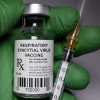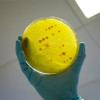
 IJCP Editorial Team
IJCP Editorial Team
Study Shows A New Antibody Can Target and Cure Melanomas
A new form of immunotherapy has shown promising results in targeting and combating one of the most aggressive skin cancer, melanoma.
Researchers from Guy's and St Thomas' NHS Foundation Trust and King's College, London, developed a specific immunoglobulin (Ig)E antibody for chondroitin sulfate proteoglycan 4 (CSPG4) – a marker found on up to 70% of melanomas. The study found that the CSPG4 IgE antibody could attach to and activate immune cells to kill melanoma cancer cells and inhibit cancer growth in mice. This new class of drugs could potentially benefit patients who do not respond to current therapies and paves the way for a new therapeutic modality for fighting cancer.

IJCP Editorial Team
Comprising seasoned professionals and experts from the medical field, the IJCP editorial team is dedicated to delivering timely and accurate content and thriving to provide attention-grabbing information for the readers. What sets them apart are their diverse expertise, spanning academia, research, and clinical practice, and their dedication to upholding the highest standards of quality and integrity. With a wealth of experience and a commitment to excellence, the IJCP editorial team strives to provide valuable perspectives, the latest trends, and in-depth analyses across various medical domains, all in a way that keeps you interested and engaged.















Please login to comment on this article